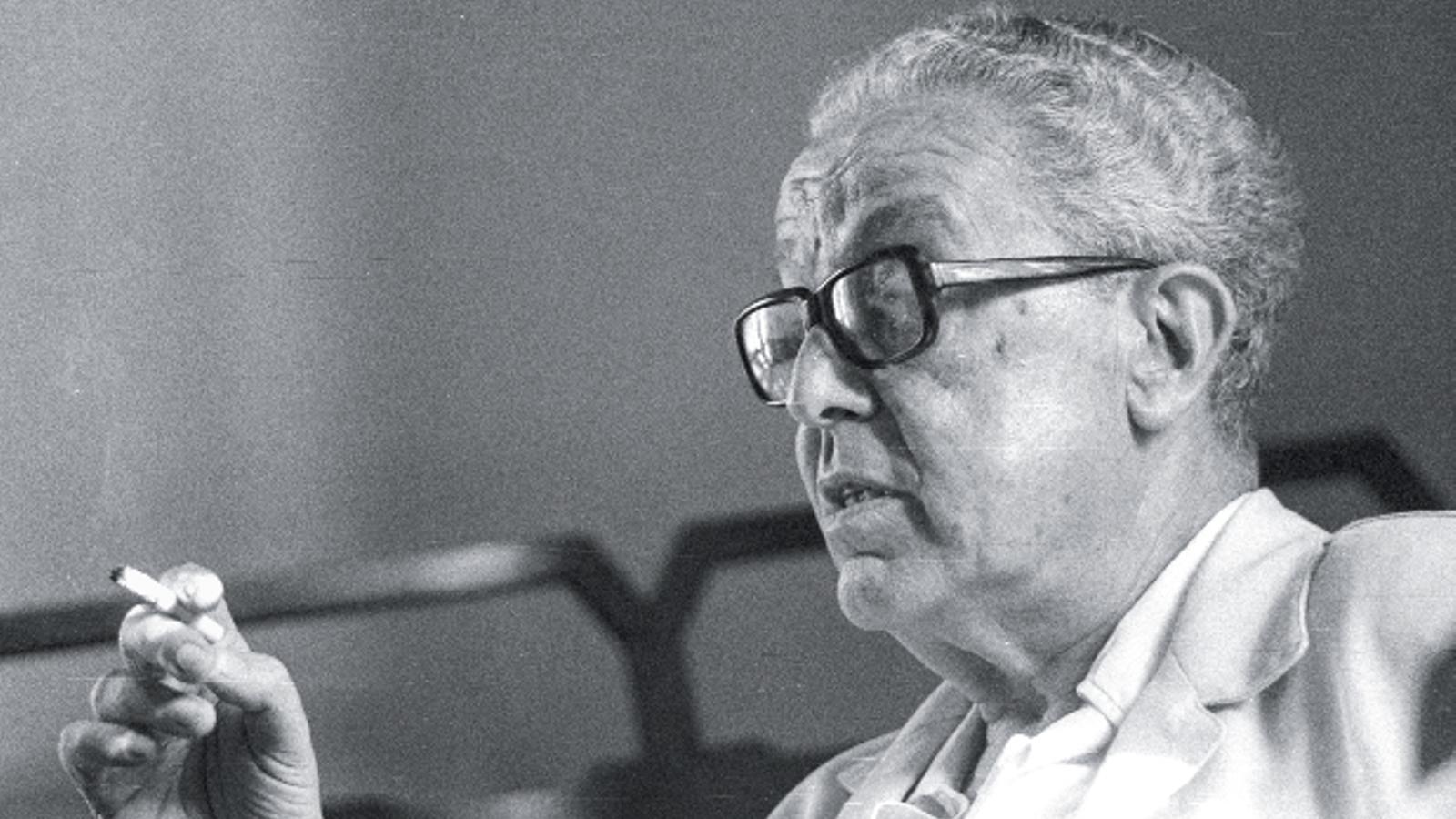An unjustly forgotten pioneer of Catalan detective fiction
The Clandestina publishing house is bringing back 'Dear Mr. Prosecutor' by Mauricio Serrahima.

Barcelona"Dear Mr. Prosecutor It is one of the pioneering texts of the detective genre and one of the most original. The novel by Mauricio Serrahima (Barcelona, 1902-1979) was published in February 1955, a few months afterEasy blood is shed (1954) by Manuel de Pedrolo, considered the first detective novel in Catalan," explains Àlex Martín, director of the Crims.cat imprint of the Clandestina publishing house. "We have decided to reissue it seventy years later because we want to make known, with a new sub-imprint, Catalan classics of the detective genre that have been unjustly forgotten. year. Among them, Maria Aurèlia Capmany and Jaume Fuster. Maurici Serrahima was a lawyer by family tradition, but above all, and by vocation, a writer, literary critic and republican. From the past when it was presentWritten in six volumes, they cover thirty-four years (1940-1974) and are essential for understanding the everyday history of post-war Barcelona, especially with regard to intellectual, political, and Catalanist circles. Dear Mr. Prosecutor, which Serrahima wrote Written in just 25 days, taking advantage of his wife's trip to Paris, it is the author's only crime novel, although he made some attempts to write another. "From the very beginning, I titled it that way because it's the first words of the text; that is, the heading of a letter. I mustn't deny that the idea of writing it that way comes from having read Letter to my player, by Georges Simenon—magnificent. I want to write it quickly and like manna,” wrote the author. “Serrahima subverts the codes. In the novel, there are no detectives or police officers; rather, it’s a letter from a man convicted of murder who writes to the prosecutor to explain how he ended up in prison,” explains Martín.
The Claustrophobia of Dictatorship
There's a certain resignation in the testimony of Carles Creus, the novel's protagonist and narrator. Convicted of the murder of a prestigious doctor, he knows that whatever he says, he's already condemned and will never be released from prison. "It's a fierce critique of the judiciary, which remains a dictatorial power," Martín emphasizes. Creus is aware that no matter how he justifies himself to the prosecutor, because he won't be released from prison, he gives up the presumption of innocence and knows that authoritarian power quickly imposes the death sentence. "It's a metaphor for the claustrophobia of the dictatorship and it's a very dark, very distressing story about the laws of the time that Serrahima knew very well," Martín adds.
Another unique feature of the novel is that it describes the life and loneliness of a prisoner. "There are very few prison dramas in Catalan, and in that sense, the novel is very interesting," Martín comments. The writer was devoted to Francophone literature and a follower of François Mauriac, Albert Camus, and Marcel Proust. He had a soft spot for GK Chesterton and his father Brown, and especially for Georges Simenon. In fact, he translated some of the Belgian writer's titles for the novel and detective novel collection The Straw Tail and he was a theorist of the genre, having published various articles.
According to Serrahima, the detective novel is a kind of "search for lost time": "It confronts the most tragic of human limitations, the impossibility of going back and reliving what has been lived; the irreversibility of time." In that analysis, the writer explained that the greatness of these novels is that they offer a vision "of the drama of man who is forced to fight against the irreversibility of time, and this not out of self-indulgence, legitimate as it may be, but out of a demand for human justice." A justice that, in many cases, never comes...
